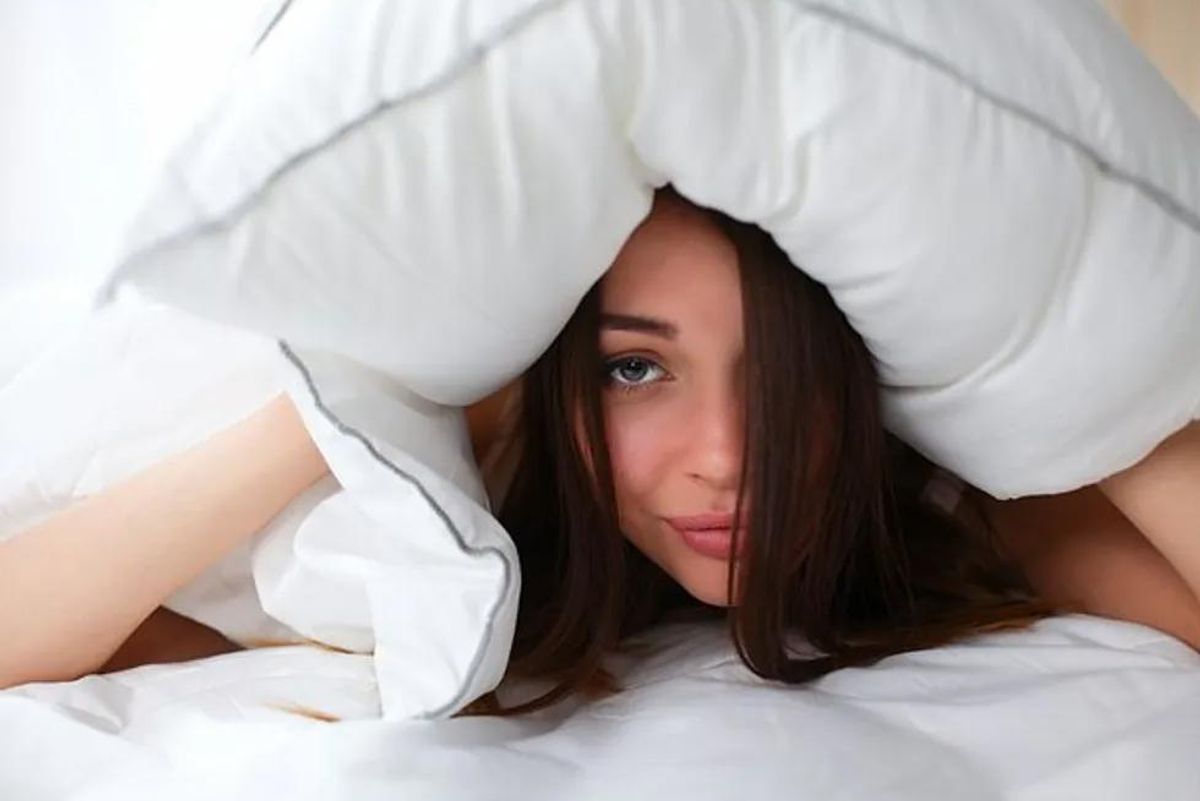
Top Sleep Stealers and How to Combat Them
One of the sleep stealers outlined below could be to blame for your restless nights.
Dec 14, 2016
Jul 27, 2021
Self-Care & Mental Health
Stacey Feintuch is a Blogger, Freelance Writer, Public Speaker and Young-ish Widow
Full BioLearn about our editorial policies

When you finally get to lay your head on the pillow, all you want is to fall sleep and stay that way. But, it's 3 a.m. and you're wide awake. The next night, the same thing happens. What is going on?
Don't panic; we've all been there. It's totally normal to wake up in the middle of the night. But you should be able to go back to sleep even if you've awaken in the wee hours. Curious what's causing your shuteye woes? One of the sleep stealers outlined below could be to blame. Find out more and get tips to deal with these culprits. That way you can get a good night's rest once and for all.
The sleep stealer: You're hot.
How to combat it: The National Sleep Foundation (NSF) says that it takes longer to fall asleep when it's warm. And once you do fall sleep, it may be fragmented or broken up due to the heat. NSF says that for optimal sleep, in general, the suggested bedroom temperature should be between 60 and 67 degrees Fahrenheit. Others measures to help prevent your sleep environment from getting hot include closing the blinds and windows during the day (assuming the temperature outside is hotter than it is inside). Sleep in pajamas that are made from materials that wick away sweet (or no pajamas if you so desire). No AC? Crank up a fan or open the windows overnight.
The sleep stealer: You have to go to the bathroom.
How to combat it: It's normal to get up once or so to go to the bathroom in the middle of the night. But if you're waking up so often that it's getting in the way of a good night's sleep, consider evaluating your diet. The water found in foods like celery, watermelon or cucumbers may cause you to wake up in the middle of the night to use the restroom. Why? These foods are natural diuretics, which mean they push water through your system. And that means you'll need to use the bathroom a bit more than usual.
The sleep stealer: You spend evenings on your electronic devices.
How to combat it: You hop into bed and scroll through your email, Twitter, Facebook, Instagram and more on your laptop, phone or tablet. But this screentime is doing more harm than good. When looking at your devices during the evening hours, you're exposing yourself to light that can keep your brain awake. Aim to make your last hour before bedtime screenless by turning off the television, iPhone, iPad, laptop and other electronics.
The sleep stealer: You don't feel well.
How to combat it: Suffering from nighttime indigestion? Oranges, lemons, grapefruits and other tangy citrus fruits as well as orange juice may be nutritious. But they're also acidic. And that means they can cause heartburn, which can keep you awake at night. Avoid consuming them close to bedtime for a better night's sleep.
The sleep stealer: You feel like you just ate dinner.
How to combat it: Did you eat burgers and fries, pizza or another fatty food before bed? Fattier meals lead to weight gain, of course. But this fare also can disrupt your sleep cycle. Why? Eating a heavy meal promotes digestion, which means you'll have to use the restroom overnight. Plus, foods high in fat can give you stomach discomfort or heartburn. And that can make it difficult to fall asleep. Need more proof? A recent study found that eating too much saturated fat is linked to sleep that's lighter and more wakeful.
The sleep stealer: You're wired.
How to combat it: You want that cup of java to keep you awake during the day, not at night. But, since caffeine can stay in your system for hours, that mid-afternoon coffee run can haunt you later one. And don't forget those coffee-flavored treats like cappuccino-flavored ice cream, which can also give you a dose of caffeine not to mention caffeine-laden cola, root beer, tea and chocolate. If you find that you're sensitive at night to caffeine's impact, avoid it in the afternoon as well as the evening.
If tips like these don't work, speak with your healthcare provider. He can diagnose or rule out sleep disorders.